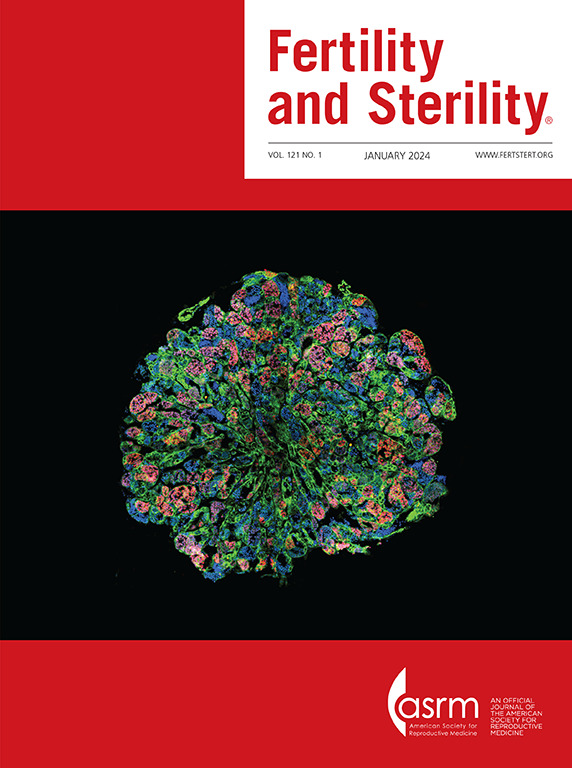PCOS在2025年-洞察和创新。
IF 7
1区 医学
Q1 OBSTETRICS & GYNECOLOGY
引用次数: 0
摘要
多囊卵巢综合征(PCOS)是育龄妇女最常见的内分泌疾病,对生殖、代谢、心血管和心理健康有着广泛的影响。抗本文章由计算机程序翻译,如有差异,请以英文原文为准。
PCOS in 2025 - Insights and Innovations.
Polycystic ovary syndrome (PCOS) is the most common endocrine disorder in women of reproductive age, with broad implications for reproductive, metabolic, cardiovascular, and psychological health. Anti-Müllerian hormone (AMH) has emerged as a unique biomarker reflecting both ovarian reserve and possibly playing a significant role as a neuroactive hormone in the pathogenesis of PCOS. Beyond reproductive concerns, PCOS confers an elevated lifetime risk of obesity, metabolic syndrome and type 2 diabetes. With increasing evidence for risk of myocardial infarction and stroke even in the reproductive years, PCOS is now considered a cardiovascular disease risk enhancing factor. Novel insights into the alterations observed in the gut microbiome in PCOS suggest possible contributions to metabolic dysfunction and inflammation, opening avenues for innovative therapeutic strategies. Expanding on the gut-PCOS connection, the high prevalence of mental health disorders such as depression and anxiety observed in PCOS may be linked to gut dysbiosis. Although recent studies indicate differences in neuroimaging and cognitive function in women with PCOS compared to controls, rigorous evaluation accounting for other factors influencing cognition and longitudinal changes are needed. Given the increased prevalence of multisystem comorbidities, early diagnosis, especially in adolescence will allow appropriate counselling and implementation of early prevention and frequent cardiometabolic screening. Together, these developments will ultimately allow for development of novel therapies and result in comprehensive, patient-centered, and evidence-based care. Advances in understanding the pathogenesis of PCOS and its associated comorbidities and recognizing PCOS as a CVD risk enhancing condition hold promise for improving long-term outcomes and quality of life for women living with PCOS.
求助全文
通过发布文献求助,成功后即可免费获取论文全文。
去求助
来源期刊

Fertility and sterility
医学-妇产科学
CiteScore
11.30
自引率
6.00%
发文量
1446
审稿时长
31 days
期刊介绍:
Fertility and Sterility® is an international journal for obstetricians, gynecologists, reproductive endocrinologists, urologists, basic scientists and others who treat and investigate problems of infertility and human reproductive disorders. The journal publishes juried original scientific articles in clinical and laboratory research relevant to reproductive endocrinology, urology, andrology, physiology, immunology, genetics, contraception, and menopause. Fertility and Sterility® encourages and supports meaningful basic and clinical research, and facilitates and promotes excellence in professional education, in the field of reproductive medicine.
 求助内容:
求助内容: 应助结果提醒方式:
应助结果提醒方式:


